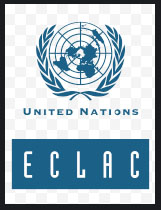
In what must be considered one of the most prominent recent lobbies on the international stage to get more focused global attention to the challenges facing the Caribbean region, Executive Secretary of the Economic Commission for Latin America and the Caribbean (ECLAC) Alicia Barcena on October 27th made a stirring case for the region’s development challenges to achieve a higher level of global coverage.
In a virtual panel discussion titled “Challenges for the Caribbean to build back better” staged as part of the proceedings for the 38th ECLAC Session, Barcena said that the Caribbean as a region and more especially provinces could The small islands may be heading for a “perfect storm” Unless it receives restorative support from the international community. “Heavy debt and a liquidity crisis, climate change vulnerability and high spending due to the COVID-19 crisis are among the challenges currently facing the region, says Barcena.
“For years we have been promoting a debt relief initiative and creating a Caribbean Resilience Fund. It requires an initial capitalization of US $ 6.9 billion dollars (12.2% of the regional debt) and access to reduced funding. ”
An ECLAC media release after the event said that the turbulent Caribbean lobby made by its Executive Secretary had been implemented as part of the organisation’s ‘Caribbean First’ strategy which aims to focus more studied attention on some of the unique problems facing the region.
Traditionally, global coverage of poverty and underdevelopment issues has mainly focused on African and Asian regions mainly because those problems manifest themselves in the affected countries more prominently, especially with regard to poverty , malnutrition and high death rates. However, Barcena claimed that categorizing English-speaking Caribbean countries as ‘middle-income’ “hinders their access to international finance under favorable conditions,” effectively slowing their development.
In a presentation that focused on efforts to restore the region to some normality in the post-COVID era, he said that while the Caribbean had made “huge financial efforts to cope with COVID-19 … it does not have the resources available to it adequately the current context. ”
With the exception of Guyana, ECLAC predicts a 6.9% contraction in sub-region GDP in 2020 on top of high levels of public debt.
ECLAC’s focus on the need for the Caribbean to receive a strong measure of international support from COVID-19 comes against the backdrop of its observation that tourism is one of the sectors most affected by the pandemic. At the same time it notes that COVID-19-related regional health expenses for the region totaled US $ 260 million during the first quarter of 2020 alone. ECLAC has also noted its concern that the socio-economic effects of COVID-19 in the region “reflect the underlying inequalities in access to education (a) of donor financial assistance that have been inadequate given the huge challenges that countries Caribbean faces them ”. Bárcena warned that the liquidity crisis of the Caribbean sub-region could become a solvency crisis, which would result in a perfect storm. “Annually the Caribbean spends US $ 3 billion dollars on losses and damage caused by environmental disasters and the effects of climate change, which increases the fiscal burden on countries, says Barcena.